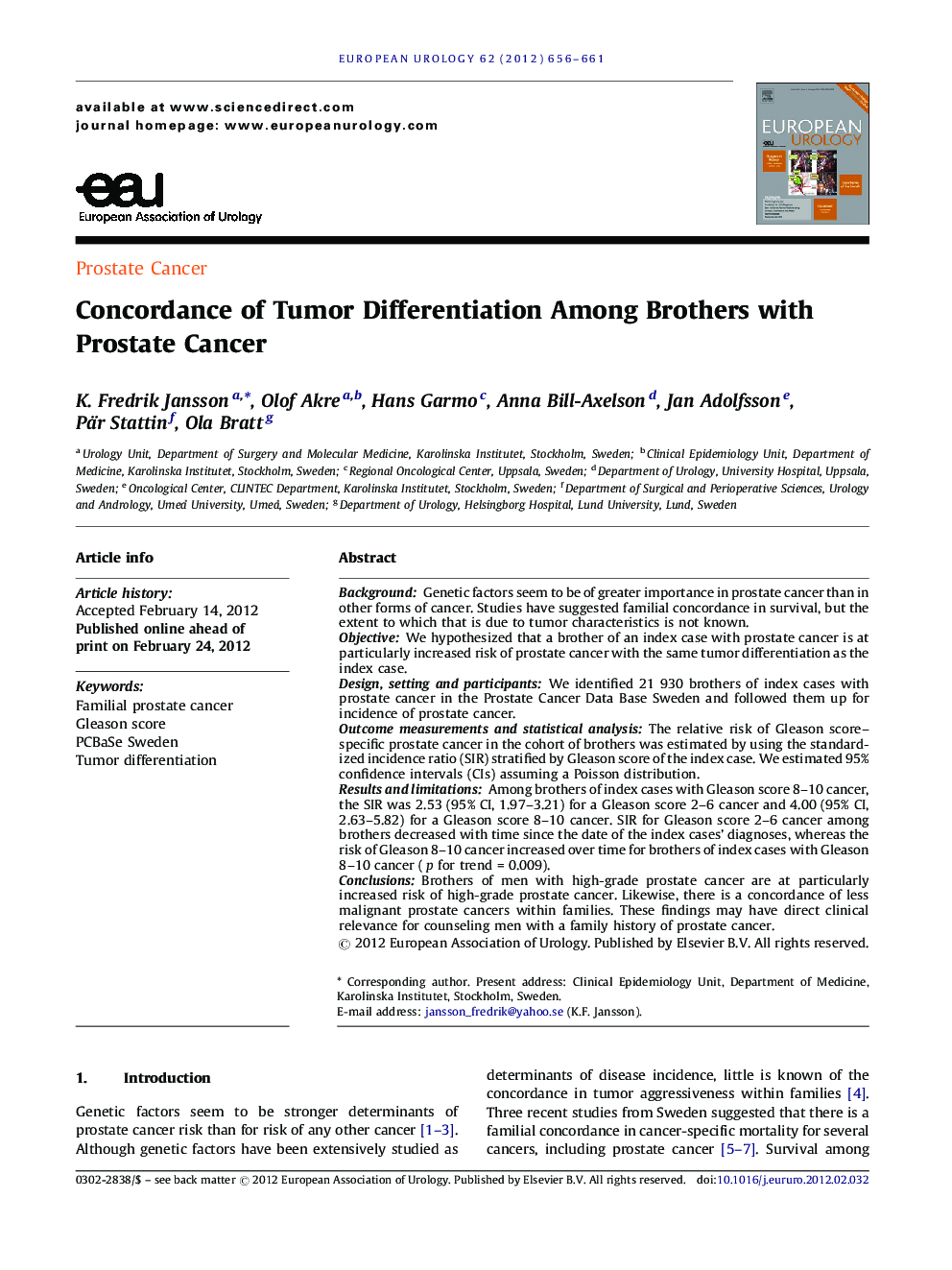| Article ID | Journal | Published Year | Pages | File Type |
|---|---|---|---|---|
| 3924008 | European Urology | 2012 | 6 Pages |
BackgroundGenetic factors seem to be of greater importance in prostate cancer than in other forms of cancer. Studies have suggested familial concordance in survival, but the extent to which that is due to tumor characteristics is not known.ObjectiveWe hypothesized that a brother of an index case with prostate cancer is at particularly increased risk of prostate cancer with the same tumor differentiation as the index case.Design, setting and participantsWe identified 21 930 brothers of index cases with prostate cancer in the Prostate Cancer Data Base Sweden and followed them up for incidence of prostate cancer.Outcome measurements and statistical analysisThe relative risk of Gleason score–specific prostate cancer in the cohort of brothers was estimated by using the standardized incidence ratio (SIR) stratified by Gleason score of the index case. We estimated 95% confidence intervals (CIs) assuming a Poisson distribution.Results and limitationsAmong brothers of index cases with Gleason score 8–10 cancer, the SIR was 2.53 (95% CI, 1.97–3.21) for a Gleason score 2–6 cancer and 4.00 (95% CI, 2.63–5.82) for a Gleason score 8–10 cancer. SIR for Gleason score 2–6 cancer among brothers decreased with time since the date of the index cases’ diagnoses, whereas the risk of Gleason 8–10 cancer increased over time for brothers of index cases with Gleason 8–10 cancer (p for trend = 0.009).ConclusionsBrothers of men with high-grade prostate cancer are at particularly increased risk of high-grade prostate cancer. Likewise, there is a concordance of less malignant prostate cancers within families. These findings may have direct clinical relevance for counseling men with a family history of prostate cancer.
